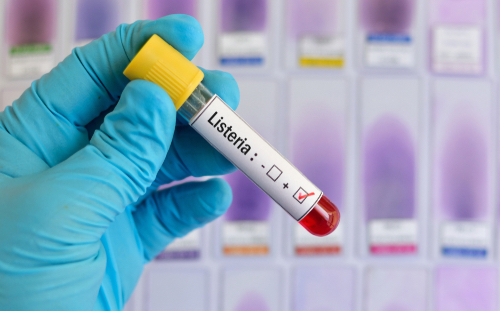


After two people died in New South Wales and Victoria last month due to eating contaminated smoked salmon, Queensland Health has issued more information surrounding Listeria. It’s hoped the information will educate people on how the bacteria is contracted, spread and who is most at risk.
If you know someone who is pregnant, or have been pregnant, you’re probably aware of the foods that are off limits during those 9 months. But it’s not just pregnant women who have an increased risk of listeriosis; elderly people with a weakened immune system are also susceptible. Contraction of the bacteria can lead to hospitalisation or potentially death.
Like other food-borne illnesses, understanding how to avoid and prevent Listeria is the best way to keep yourself and your loved ones, safe and healthy.
What is Listeria (Listeriosis)?
Listeria monoctyogenes are bacteria that contaminate raw food. The bacteria are found in raw meats, vegetables and unpasteurised dairy products. If infected with Listeriosis, early consumption of antibiotics can treat it, but correct prevention is the best way to stay safe and healthy.
High-Risk Foods:
Listeriosis is spread by eating contaminated food. The following foods are considered ‘high-risk’ and are more susceptible to contamination:
- Ready-to-eat seafood such as smoked fish, mussels, oysters or raw seafood such as sashimi or sushi
- Pre-prepared fruit and vegetable salads including those in buffets, salad bars and sandwich bars
- Fruit or vegetable juices where washing procedures are unknown
- Deli meats such as ham, paté, salami, cooked and diced chicken; or other meats which are consumed without further heating or cooking
- Unpasteurised milk or food made from that milk; for example, soft serve ice cream
- Soft cheeses such as brie, camembert, ricotta and feta
- Dips and salad dressings where vegetables may have been dipped
- Leftover meals containing meat that have been refrigerated for more than 24 hours.
Signs and Symptoms:
Healthy people who come in contact with Listeria may show only mild symptoms or none at all. However, other symptoms that indicate a more serious case of Listeria include:
- Sudden onset of fever
- Headache
- Backache
- Nausea, vomiting and diarrhoea
- Stiffness of the neck
- Convulsions
- Blood poisoning.
Queensland Health says pregnant women, elderly people and people with a weakened immune system including diabetics, HIV positive and cancer patients, and those with a history of alcohol abuse are more at risk of contracting listeriosis.
Infection during pregnancy can lead to miscarriage, stillbirth or a very ill newborn with the death rate of 30% in infected newborns. Sometimes the mother who has contracted the bacteria will only experience mild symptoms of infection, however the risk of transmitting the infection through the placenta to the unborn baby is very high.
How do foods become contaminated?
If not treated correctly and safely, fresh produce can also become contaminated with Listeria bacteria. This can happen at any point during production, from planting, harvesting, packing and distribution, through to the preparation and serving in our homes.
Even with Australian food safety regulations and monitoring procedures, our home doctors say it’s important that people take food cleanliness into their own hands and ensure their fruit and vegetables are cleaned thoroughly. Produce that grows close to the ground like Rockmelons, are particularly susceptible to contamination. In the past, Rockmelon has been linked to the spread of Listeria due to the rough surface of the skin that can make it difficult to clean and bacteria then hides in the folds. The dents in the fruit’s skin allow quick entry to the flesh of the fruit and contaminate it.
Prevention and Preparing Food Safely:
Freshly cooked foods, hard cheeses, fresh milk products and canned foods are usually considered safe. House Call Doctor recommends the following methods to prevent infection:
- Avoid food that is past its best before or use by date
- Refrigerate leftovers and consume them within 24 hours or alternatively freeze them. Refrigeration doesn’t stop the growth of Listeria and any food that has been prepared and stored in the fridge for more than 12 hours shouldn’t be eaten by pregnant women or highly susceptible people
- When reheating food, make sure it’s steaming hot. Eating freshly cooked foods are safest
- Raw meats should be kept covered and separate from cooked foods to avoid cross-contamination
- Food should be thoroughly cooked and kept hot above 60 degrees Celsius
- Any utensils used to prepare raw foods shouldn’t be used to prepare cooked or ready-to-eat food unless thoroughly washed first.
If you’re looking for further information, or are experiencing any of the above-mentioned symptoms, you should consult with your regular GP.
If you are seeking medical advice and assistance from your home, our after-hours service operates Monday to Friday 6pm to 8am, after midday Saturday and 24 hours a day on a Sunday and Public Holidays. Contact House Call Doctor on 13 55 66 if you or a loved one need urgent care after-hours.




